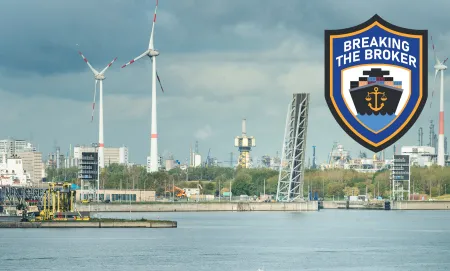Improving the understanding of cocaine trafficking through European ports
The fight against organised drug crime is a real challenge. The focus is usually on local dealers and users because they are easier to identify. However the networks that control the trafficking of cocaine through European ports are much are more complex and therefore more difficult to detect.

The new European ISF project 'Breaking the Broker' aims to better map these networks by looking at how information can be shared more efficiently between partner organisations.
Belgian and Swedish organisations are collaborating on this project. The Belgian Federal Police, more specifically the Federal Judicial Police (PJF/FGP) of Antwerp, has the lead. The other Belgian partners in the project are the Royal Military Academy, the Port of Antwerp-Bruges and its subsidiary Amaris (Antwerp Maritime Information Systems). On the Swedish side, the police, the customs and the Malmö University are part of the project group.
Breaking the Broker officially kicked off on Monday 24 and Tuesday 25 February at the Port House in Antwerp. During this two-day event, the partners within the project got to know each other better. The main aim was also to give substance to the project. During the information and breakout sessions, the approach of the project and the content of the different work packages were discussed in depth.
The project will run until the end of 2026. The first year will mainly be spent working on a crime script. This script will form the basis for identifying and further investigating interesting patterns which can better map underlying cocaine trafficking networks.



Reports will be given on the project at different times, both internally and externally. The last step will be the dissemination of the project at the end of December 2026.
